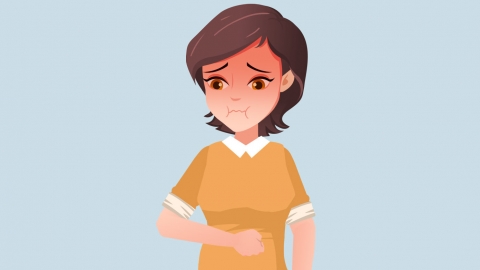What are the side effects of radiotherapy?
Generally speaking, radiotherapy refers to the use of radiation energy to damage the chromosomes of cells for the treatment of tumors. Side effects of radiotherapy may include skin damage, mucosal injury, gastrointestinal injury, bone marrow suppression, immune suppression, and others. A detailed analysis is as follows:

1. Skin Damage
Radiotherapy can break the DNA strands of skin cells, leading to cell death and impaired regeneration. Therefore, the skin in the irradiated area is most sensitive to radiation, potentially causing symptoms such as redness, itching, dryness, peeling, darkening, or discoloration. In severe cases, symptoms such as exudation and erosion may occur.
2. Mucosal Injury
During radiotherapy, mucosal tissues in areas such as the nasal cavity, throat, mouth, and esophagus are susceptible to radiation damage, which may cause pain, ulcers, bleeding, and dry mouth. These symptoms can affect the patient's ability to eat, breathe, and speak, thereby reducing their quality of life.
3. Gastrointestinal Injury
Radiotherapy may disrupt the normal function of gastrointestinal cells, leading to gastrointestinal dysfunction. This may result in symptoms such as nausea, vomiting, loss of appetite, constipation, and diarrhea. Patients can alleviate these symptoms by eating small, frequent meals consisting of easily digestible, nutrient-rich foods.
4. Bone Marrow Suppression
Radiotherapy can inhibit the division and proliferation of hematopoietic cells in the bone marrow, leading to a decrease in white blood cells, red blood cells, and platelets. This may cause symptoms such as anemia, infection, and bleeding, which can significantly affect the patient's health and immunity. Patients are advised to regularly undergo complete blood count tests and use blood-boosting medications as directed by their doctors.
5. Immune Suppression
Radiotherapy can suppress the patient's immune system, making them more susceptible to infections. Therefore, patients should pay special attention to personal hygiene during treatment, avoid contact with sources of infection, and take precautions to prevent illnesses such as colds. Additionally, maintaining adequate nutritional intake helps strengthen physical condition.
Radiotherapy has various side effects. Patients should fully understand these potential effects before starting treatment and closely monitor any physical changes during the treatment process. If any discomfort occurs, patients should promptly communicate with the medical team so that the treatment plan can be adjusted and side effects alleviated.










